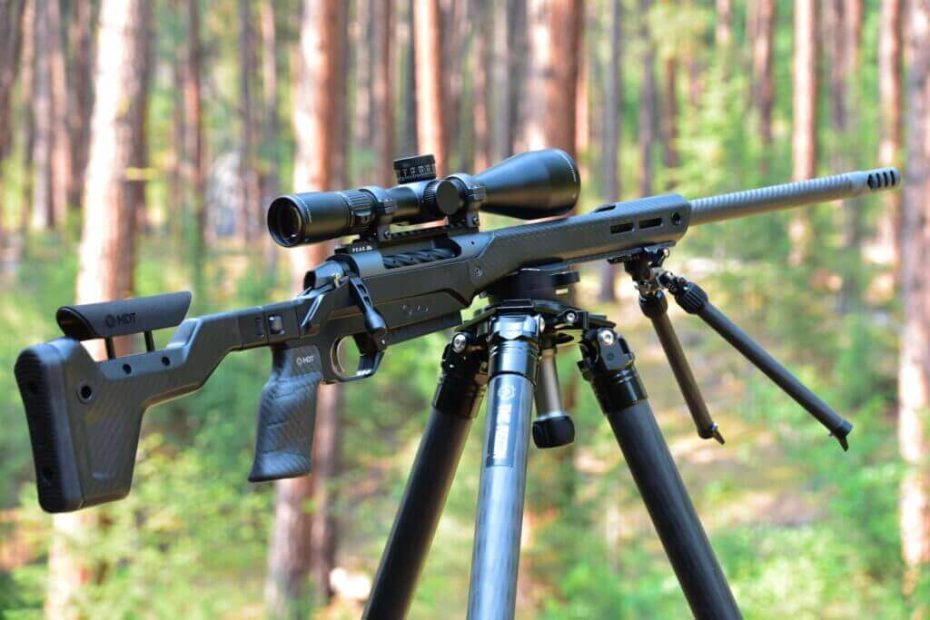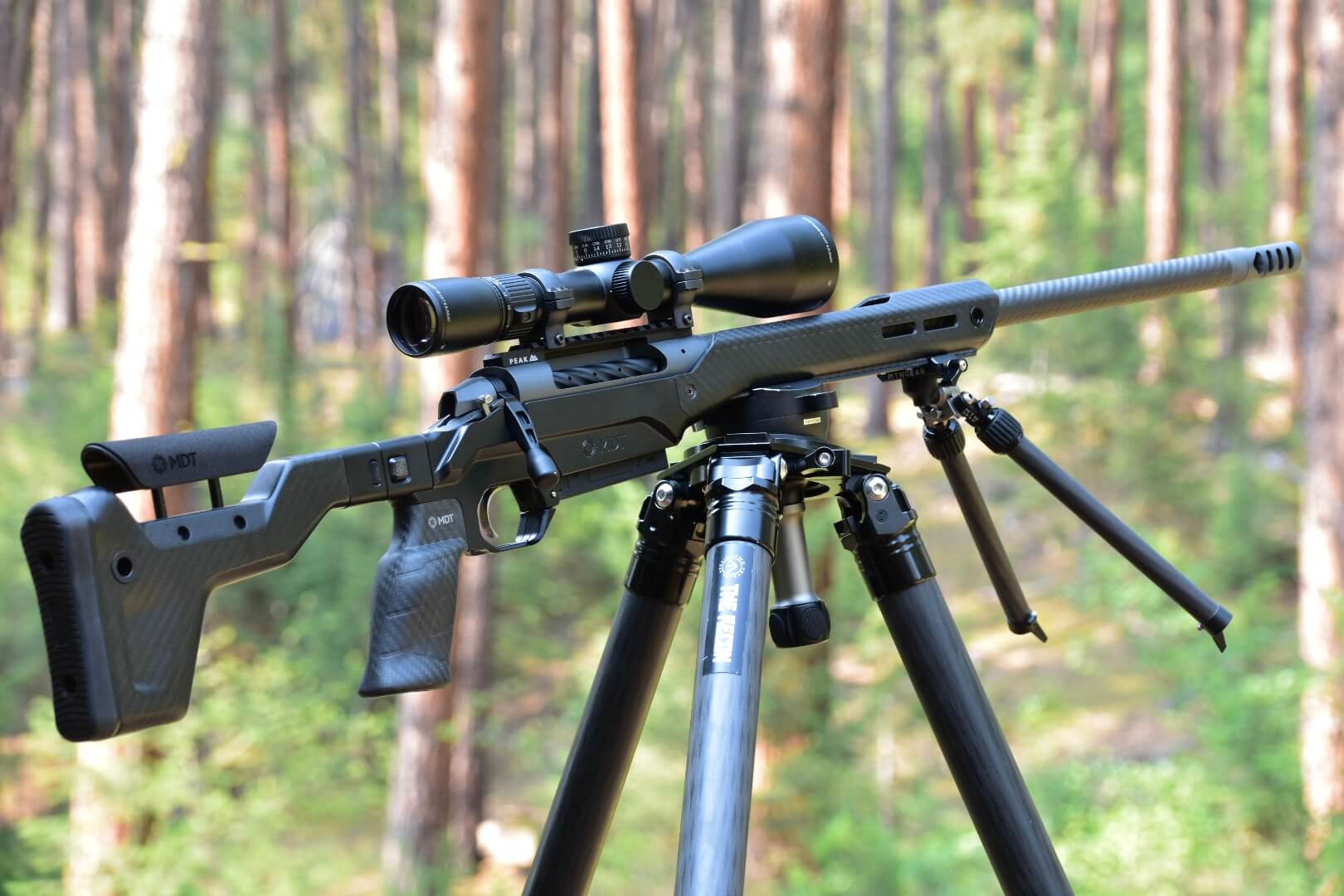
Estimated reading time: 14 minutes
Gun manufacturers are finally producing factory rifles that are copy-paste versions of my ideal custom build for hunting in the West. I think Weatherby has joined this elite club with the new release of their Model 307 Alpine MDT Carbon. I’ve got one to test that is chambered in the popular 7 PRC and this review will detail my experience with it. With carbon fiber everything, a folding stock chassis, a modern and effective muzzle brake design, updated action, and feather-light weight, why would you build a custom hunting rifle when you can buy this factory rifle that already has everything you want?
Table of contents
Overview Of The Model 307 Alpine MDT Carbon
The biggest feature of the Model 307 Alpine MDT Carbon rifle is its lightweight design. Weatherby has accomplished this by using a ton of carbon fiber. The BSF 416R stainless steel match barrel is sleeved in carbon fiber and loaded under tension. The chassis, the other largest part of a rifle, is also carbon fiber (mostly).
Weatherby utilizes the advanced MDT HNT26 chassis, which is constructed mainly of carbon fiber and magnesium alloy. This chassis is feature-packed; folding stock, adjustable cheekpiece, full-length ARCA rail on the forend, and the list goes on. Weatherby also collaborated with TriggerTech to feature their adjustable Field Trigger and Peak 44 for a quality 20 MOA Picatinny rail.
The centerpiece of this work of art is Weatherby’s own 307 Action. This is the heart of their first new bolt action centerfire rifle in over 50 years. You may know Weatherby for their premium Mark V bolt actions or Vanguard line, but the Model 307 caters to the abundance of aftermarket parts available to shooters. It is compatible with Remington 700 triggers, stocks, bottom metals, and more. Though it is compatible with these aftermarket parts, the model 307 is unique with its tool-less bolt disassembly, fluted bolt, M16-style extractor, side-mounted bolt release, heavy-duty action bolts, and more.
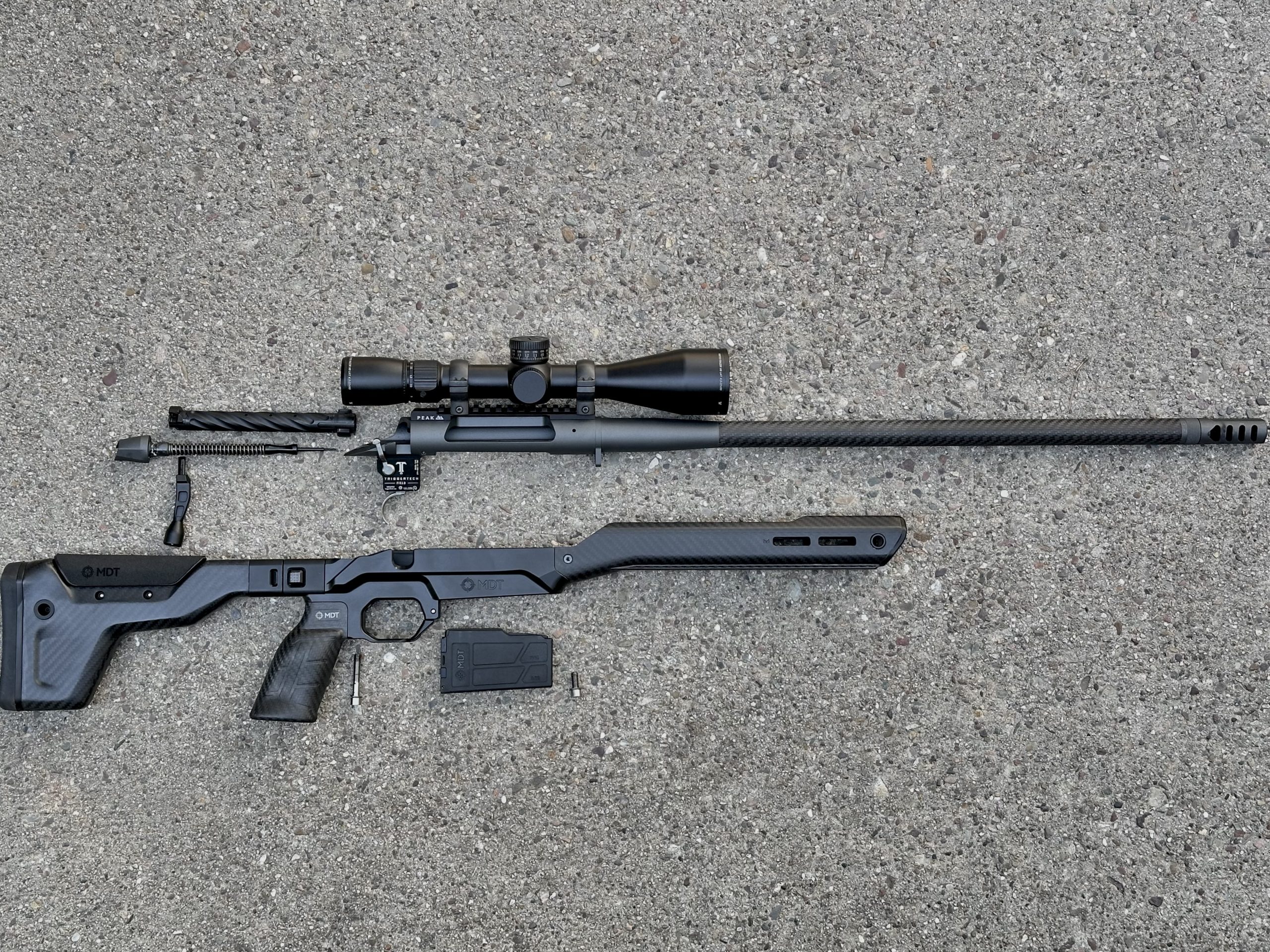
A Closer Look: Chassis
I want to go over this rifle and its components in detail, so we’ll start our discussion toward the rear of the gun and work our way forward. The first topic to be discussed is the MDT HNT26 chassis. Currently, this would be my first pick for a chassis/stock to put on a hunting rifle because it is feature-packed and lightweight. The name implies that this chassis weighs 26 ounces, which is close to the truth. However, this chassis starts at 26 ounces and varies slightly based on the inlet, forend type (ARCA vs no ARCA), buttstockstock (folding vs fixed), and amount of LOP spacers you install under the recoil pad.
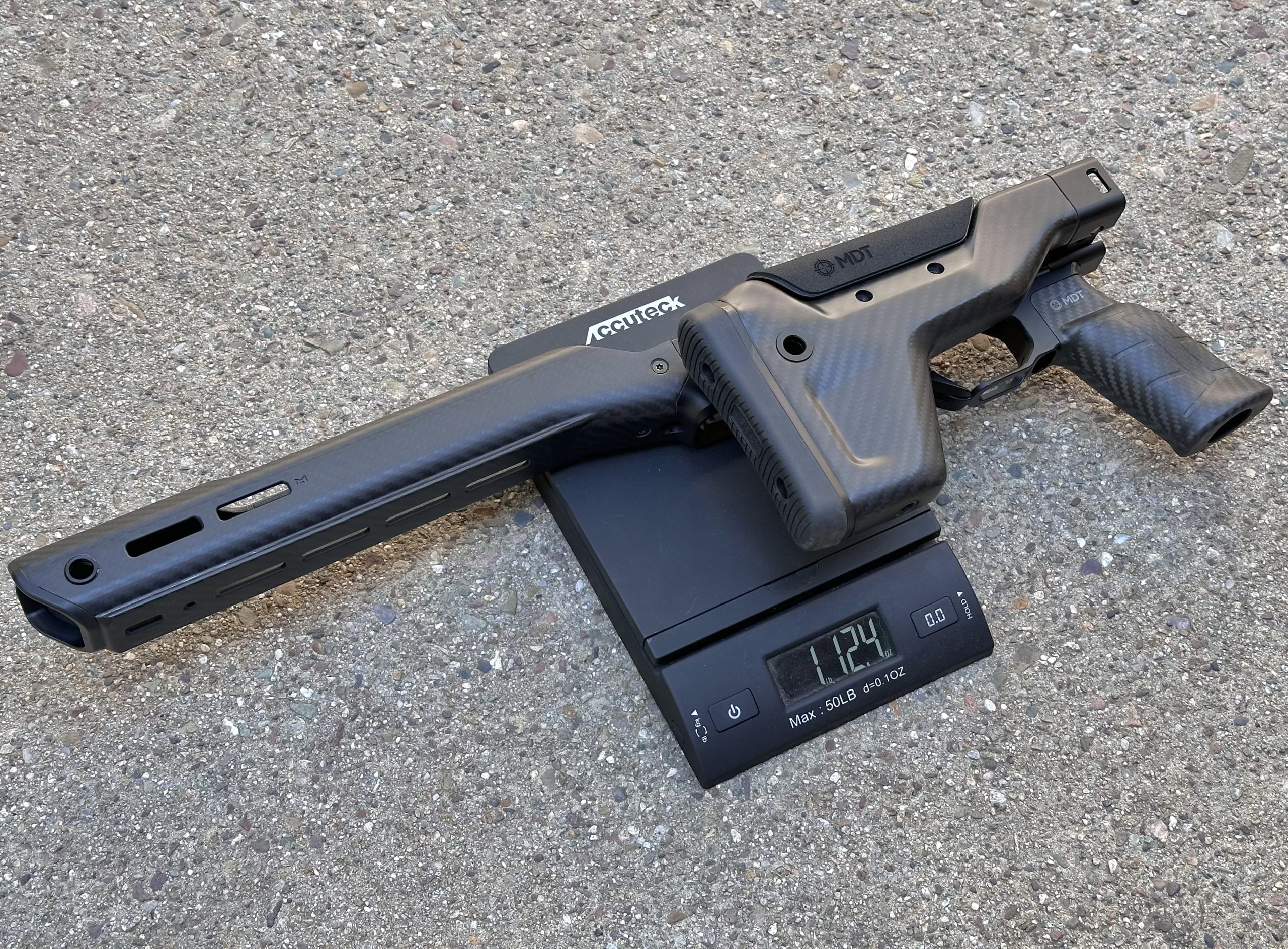
In the configuration that it comes in, the HNT26 weighs in at 28.4 oz on this Model 307 Alpine MDT Carbon rifle. Squeezed into this 28.4 ounces, you get all of the add-ons. This includes a full-length ARCA rail that is molded into the carbon fiber forend, plus a push-lock folding buttstock.
This chassis also features flush cup QD sling attachment points on both sides and M-LOK slots at the 12, 3, 6, and 9 o’clock positions on the forend. The last few details I feel are noteworthy are the ~0.8 inches of vertical adjustment the cheek riser provides and the four additional 0.25-inch spacers (1 inch total) that can be added beneath the buttpad to increase the existing 12.5-inch length-of-pull.
Chassis Features
This chassis fits a double-stacked, single-feed magazine and comes with MDT’s 7PRC MDT CIP LA Polymer Magazine. Even though it is polymer, this magazine is robust. The advantage of polymer is its weight, coming in at only 2.2 ounces, and the lack of any metallic clanking that a metal mag would make when seated in a rifle. This magazine allows a 3.630″ OAL cartridge length for your hand loaders to play with. but the most impressive thing to me was how smoothly the 307 Alpine MDT Carbon rifle fed bullets out of this magazine and into the chamber. I could not feel any resistance when working the bolt.
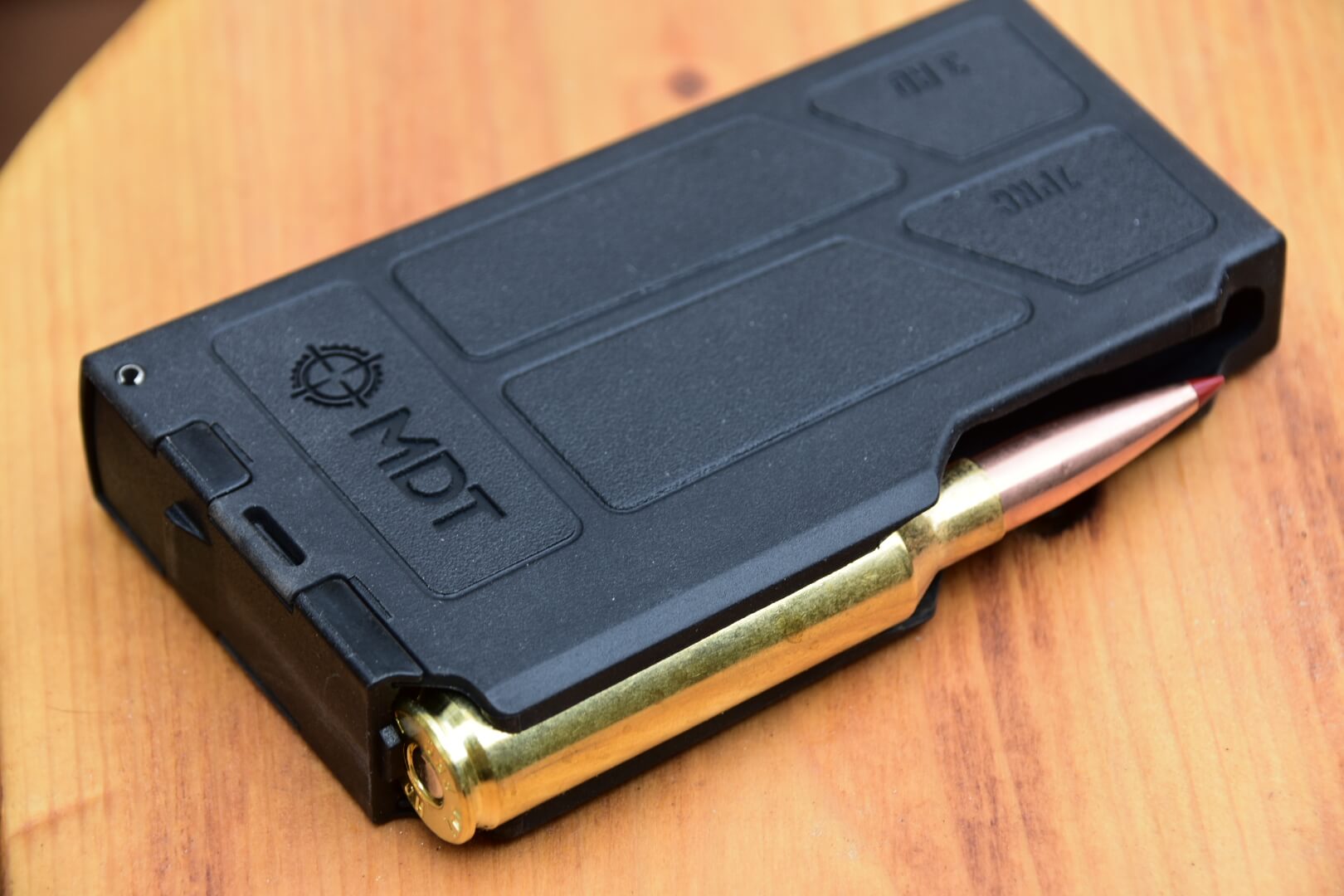
The Action
Next up is the action. I’ve already mentioned what makes the Model 307 action unique, but let’s dive deeper. The Model 307 bolt can be disassembled without tools by pushing the bolt shroud in and removing the cocking handle. “So what?” Well, I’ve been in situations that were probably self-caused, where I’ve been on the mountain and had a non-functioning rifle that couldn’t be fixed until I could access the tools to get to the firing pin inside my bolt.
The first time was because I greased my firing pin. This grease turned so viscous in the cold that it kept the firing pin from hitting the primer hard enough for ignition. On another occasion, my rifle got wet and dirty and would not fire until I cleaned the firing pin, spring, and bolt. Long story short, I see the tool-less bolt disassembly of the Model 307 to be a great feature.
Model 307 Bolt
Still focusing on the bolt, the Model 307 features a half-cock on open and half-cock on close, so you’ll feel resistance as the firing pin is pulled back into place when you lift the bolt as well as when you close the bolt. This splits the amount of work that is needed to cock the firing pin, making the bolt lift easier. You’ll also find fluting on the bolt for weight reduction and to aid in debris clearing. Three ports can be seen in this fluting on the bolt, which is a safety feature that vents gas away from the shooter in the event of a catastrophic failure caused by faulty ammunition.
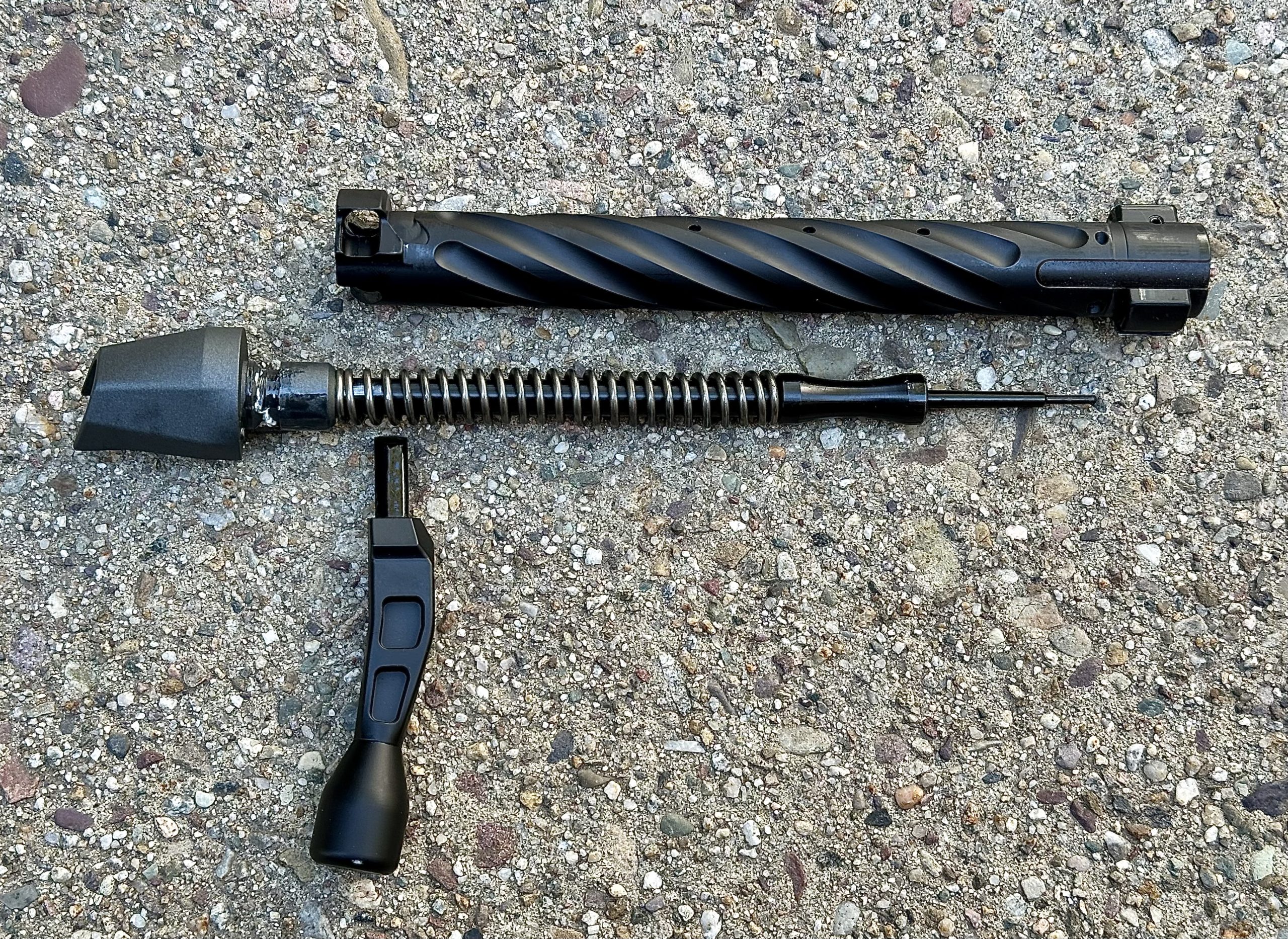
Another noteworthy feature of the action is its compatibility with popular Remington 700 inlets and triggers. If you ever decide to change out the HNT 26 chassis or TriggerTech Field trigger, you will have a myriad of options to choose from.
A Closer Look: Barrel and Brake
The Model 307 Alpine MDT Carbon features a BSF carbon fiber barrel. This barrel is very different from any other carbon fiber-wrapped barrel that I’ve extensively tested. Instead of the fiber being wrapped around the 416R stainless steel barrel in direct contact, BSF places a carbon fiber sleeve over the fluted steel barrel. This carbon sleeve puts the steel under tension when the locking ring is threaded onto the muzzle threads. This ring compresses the carbon fiber sleeve and pulls tension against the steel, which BSF claims has accuracy benefits.
Another claim is that this lack of direct contact with the insulating carbon fiber allows the barrel to cool faster.
Let me be blunt: I do not know how, nor do I have the ability to test all of the marketing speak on BSF’s website about the superiority of their barrel design. What I can say is that this barrel performed on the same level of accuracy as other premium carbon fiber barrels I’ve used, which makes it a great pairing for this hunting rifle made by Weatherby.
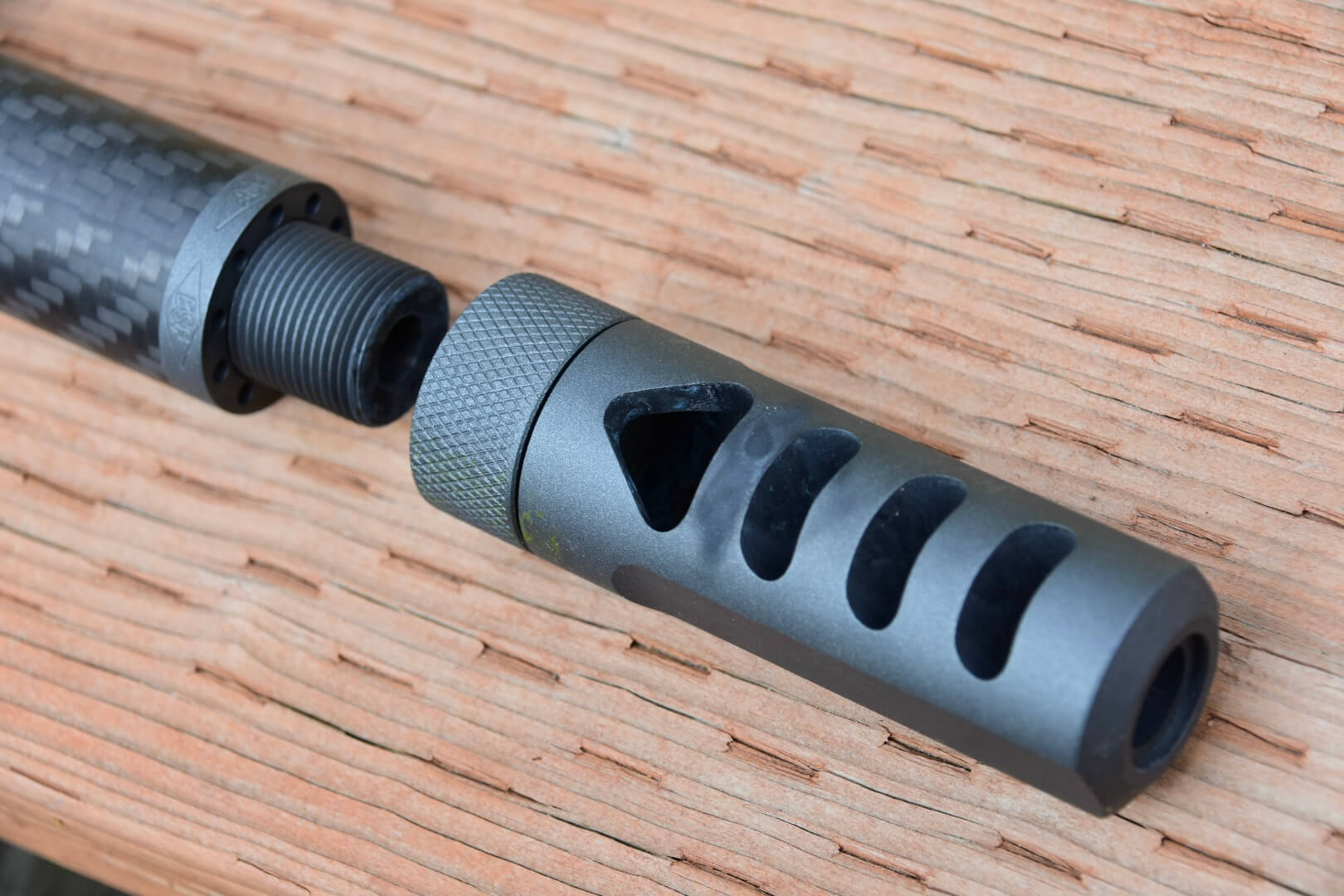
Model 307 Muzzle Brake
Now the muzzle brake: this small device has routinely been a source of complaints in my reviews of other firearms. However, Weatherby installed their Accubrake DST™ (Directional Self-Timing Brake) on the Model 307 Alpine MDT Carbon, instead of the typical and cheap, radially drilled brakes that every gun seems to come with nowadays.
The Accubrake DST is exactly what I like to see on a hunting rifle like this for a few different reasons. First, it’s self-timing, so installation is straightforward. If you want to borrow this brake for a different rifle, you don’t have to worry about the ports being lined up correctly because you can time it appropriately for any muzzle threaded 5/8×24 TPI. Next, it is a ported design. This means that the gasses are directed out of the sides of the brake only. This keeps prone shooting pleasant by reducing or eliminating any debris below the muzzle that may be directed backward toward the shooter. And finally, ported brakes are proven to be the most efficient muzzle brake design.
Every bit of recoil reduction is important when shooting a large magnum rifle that weighs so little. The efficiency of the Accubrake DST on the Model 307 Alpine MDT Carbon is the only reason I was able to spend several range days with this rifle where I shot ~100 rounds without being beat into submission or even bruised.
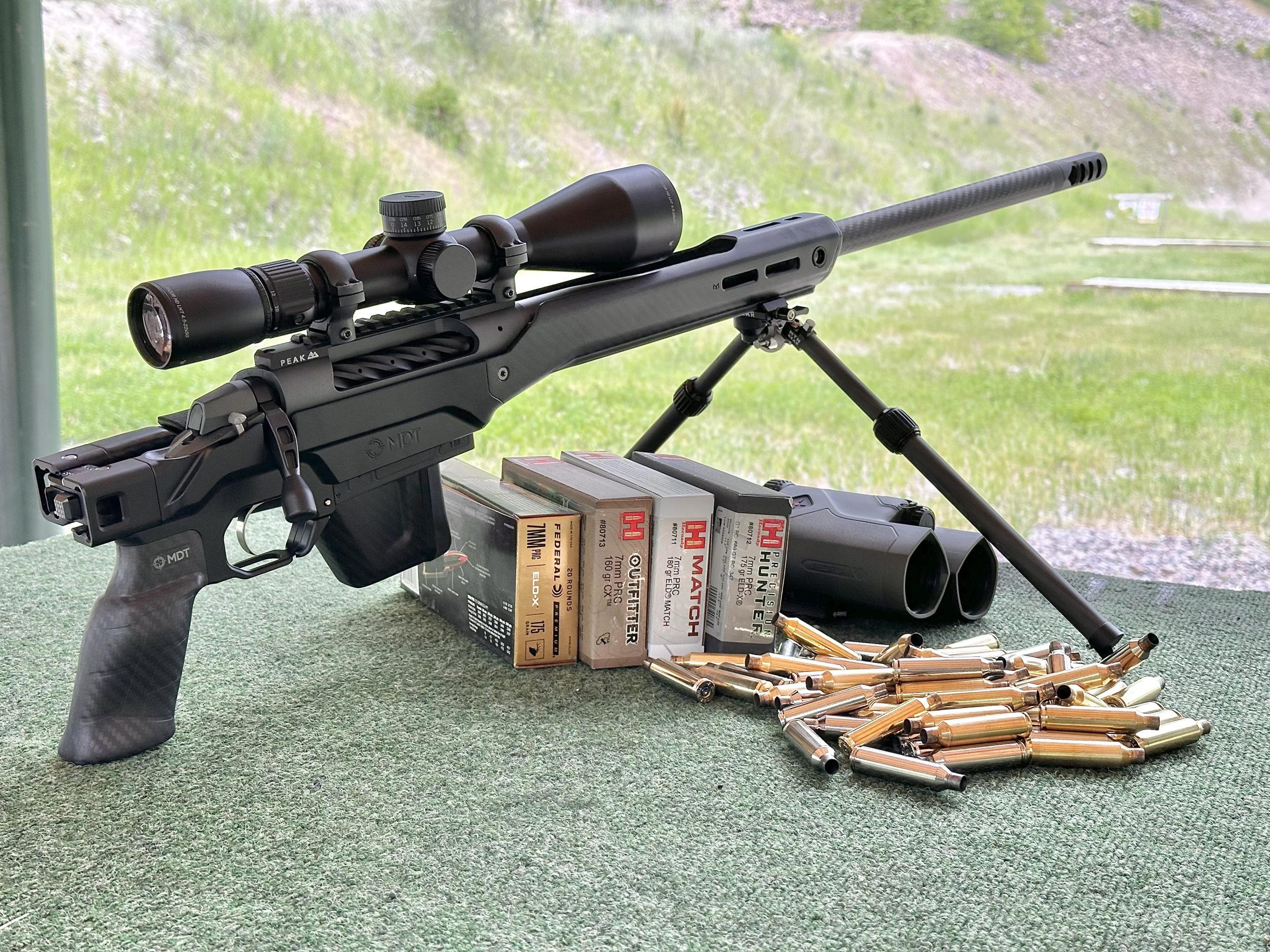
Specifications and Features:
- Caliber: 7mm PRC
- also comes in 12 other calibers
- Weight: 6.6 lbs
- varies from 6.5-6.8 lbs. based on the caliber
- Overall Length: 32.25″-44.25″
- Mag capacity: 3+1
- Barrel contour: #4 Carbon
- Muzzle threads: 5/8×24 TPI
- Barrel length” 24″ (22″ barrel + 2″ muzzle brake)
- Twist rate: 1:8″
- Length of pull: 12.5″-13.5″
- adjustable cheek height
- adjustable drop at heel
- Finish:
- barrel – carbon
- receiver/Accubrake DST – Carbon Grey Cerakote
- bolt/bolt knob – Graphite Black Cerakote
- Chassis – Carbon fiber/black
- Muzzle device: Accubrake DST
- Trigger: TriggerTech Field 2.5-5 lb. adjustable
- MSRP: $3,499.00
The Ammo
Before I get to the actual shooting, you need to know that all groups were shot using the Weatherby Model 307 MDT Carbon at a distance of 112 yards instead of the standard 100 yards. The public range and their target stand placement are to blame for this. Once the target was placed and zero was established, I shot a 5-round group with each ammunition (not shown below), then burned a little over 50 rounds shooting steel from 300 to 1,100 yards.
The ammunition I used on steel was Hornady Precision Hunter 175 gr ELD-X, which yielded very repeatable and consistent hits. Shooting this rifle long distances felt like a cheat code, even with winds varying between 5 to 10 miles per hour. The high BC of sleek 7mm bullets and respectable velocities provided by the 7mm PRC made this possible, and are the exact reasons why I chose this rifle in this caliber.
Accuracy Testing The Model 307
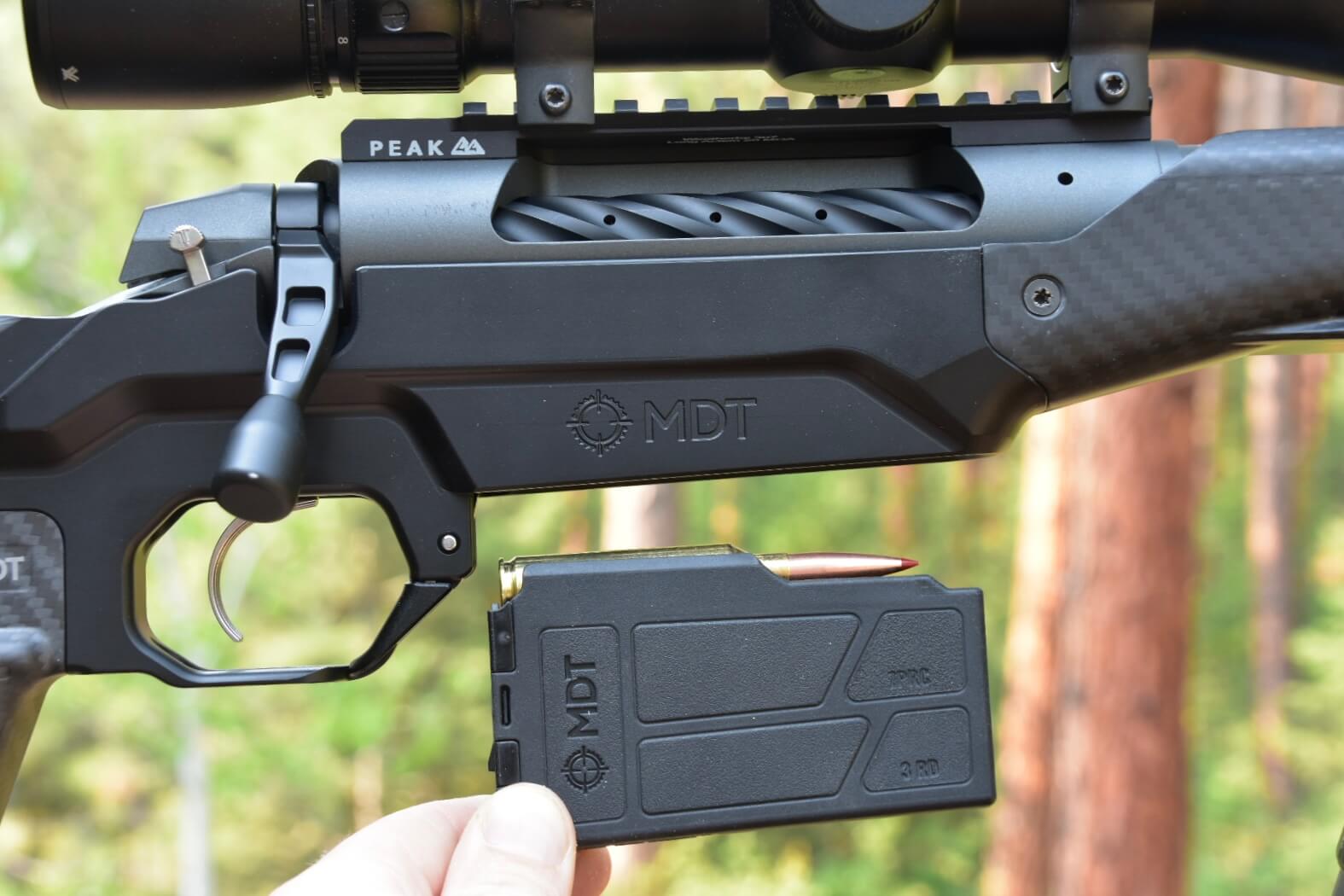
After I finished playing around and got to know the rifle, I repeated the accuracy testing at 112 yards. Weatherby guarantees this rifle, and all other Model 307 rifles, to shoot a 3-round group under 1 MOA with their ammunition. I don’t have any Weatherby 7mm PRC ammunition for testing, but I expect it to also perform similarly to other premium ammunition. Since this is a guarantee that I’m sure the Model 307 can uphold, I elected to provide you with 5-round group results.
All shooting was done with a Vortex Razor HD LHT 4.5-22×50 optic mounted while shooting off a rear bag and MTNGear Mountain Bipod (which only weighs 5.7 ounces). The very last ammunition I tested is the very first shown below. After shooting nearly 100 rounds through this lightweight rifle in one sitting, I was beginning to get sore. Admittedly, I think I pulled the outlier, which was the 5th in the 5-round group. Check out the results of my accuracy testing below:
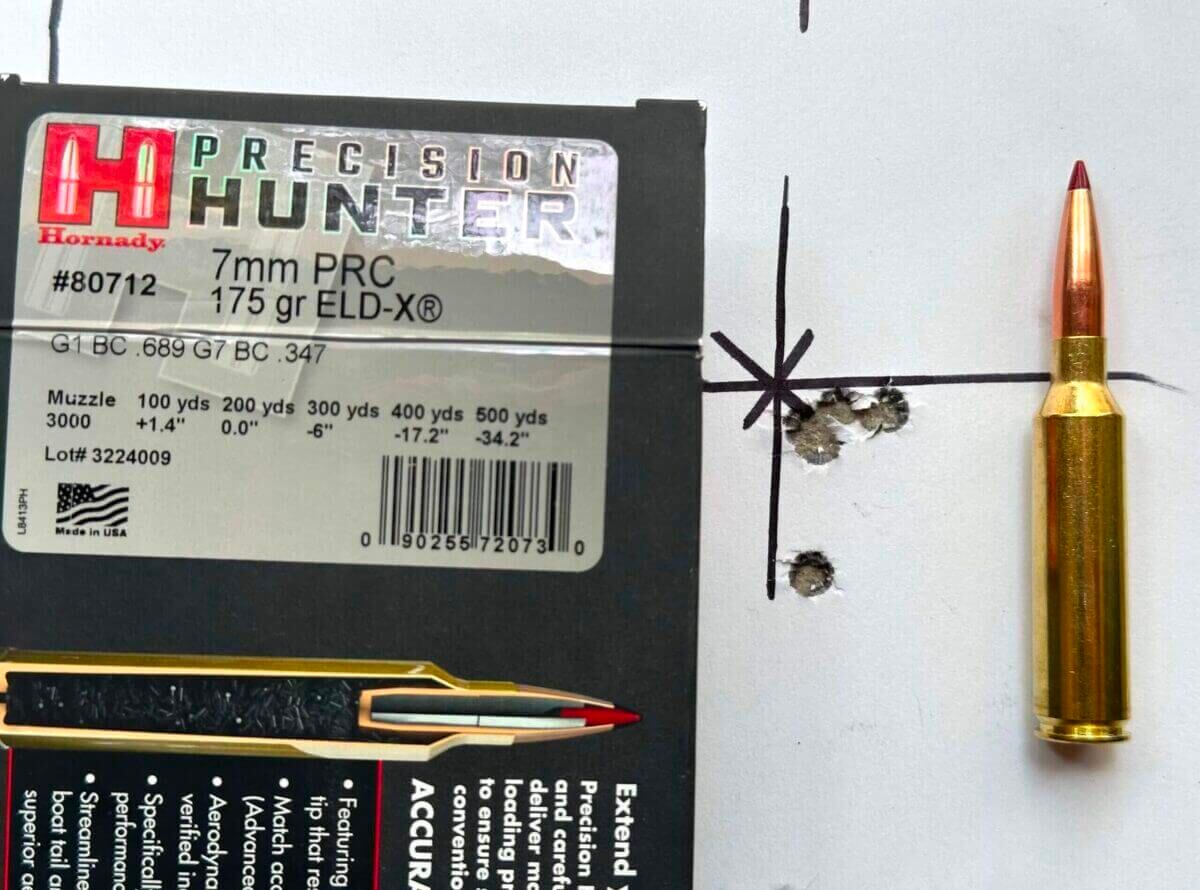
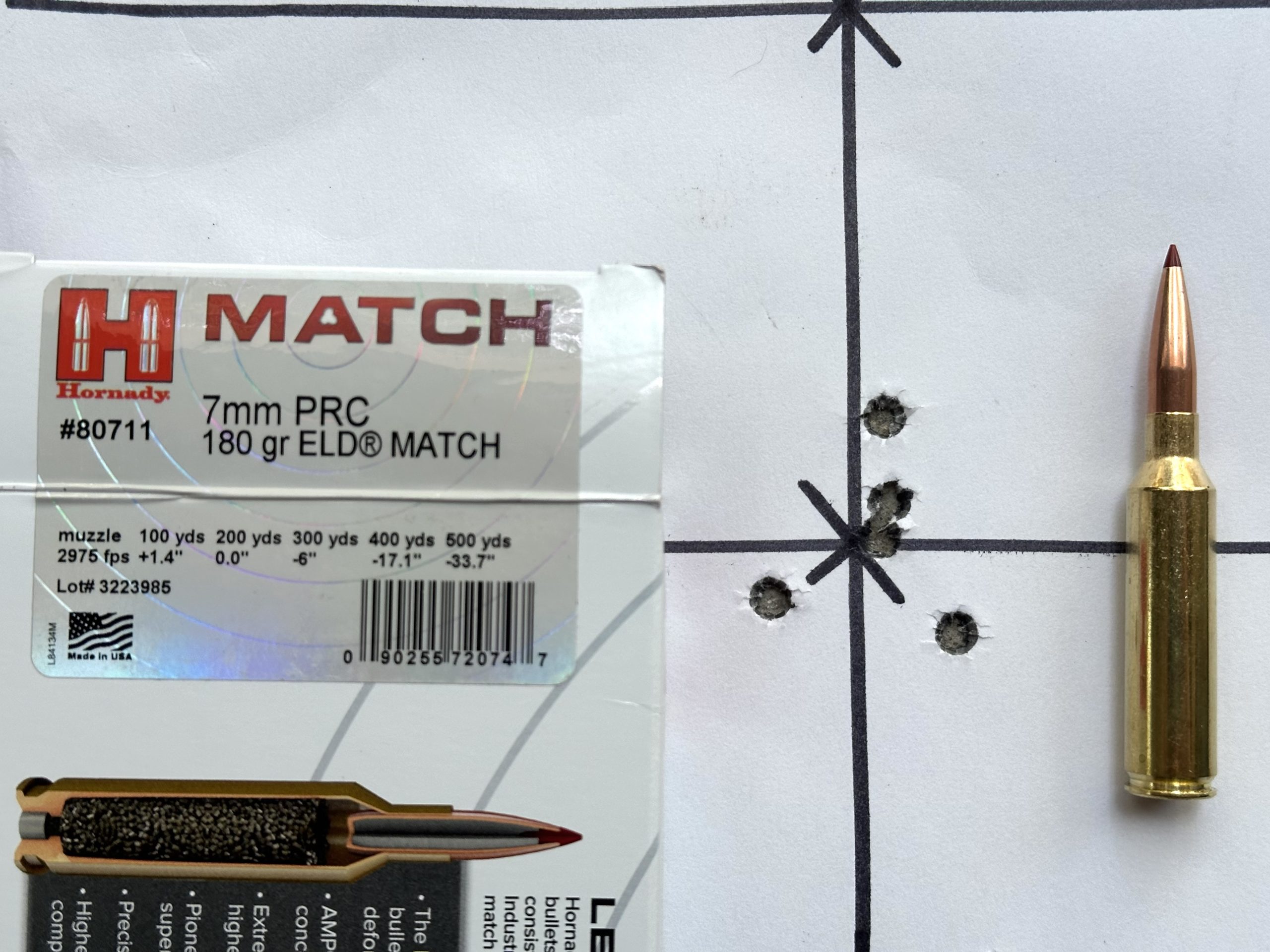
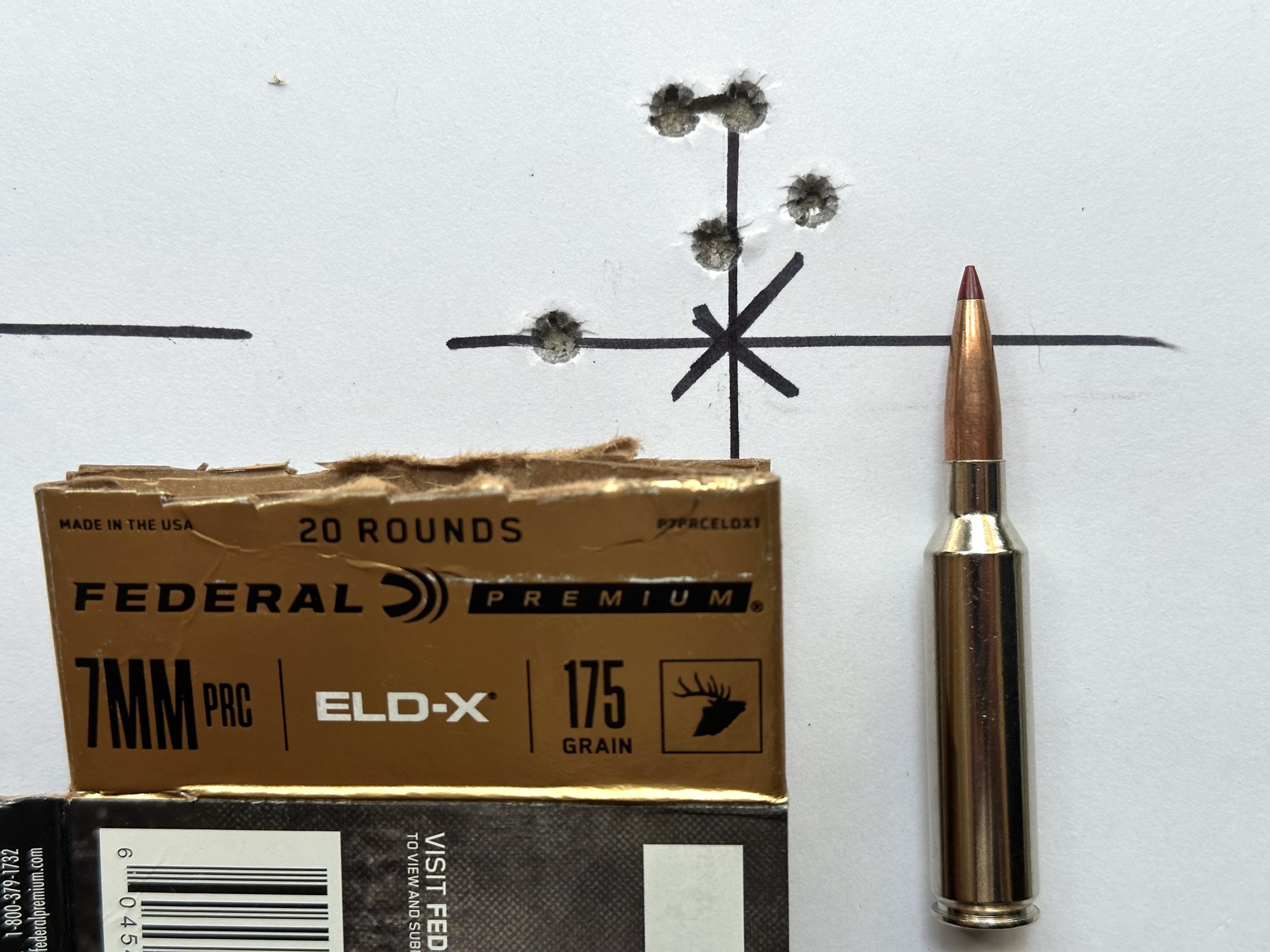
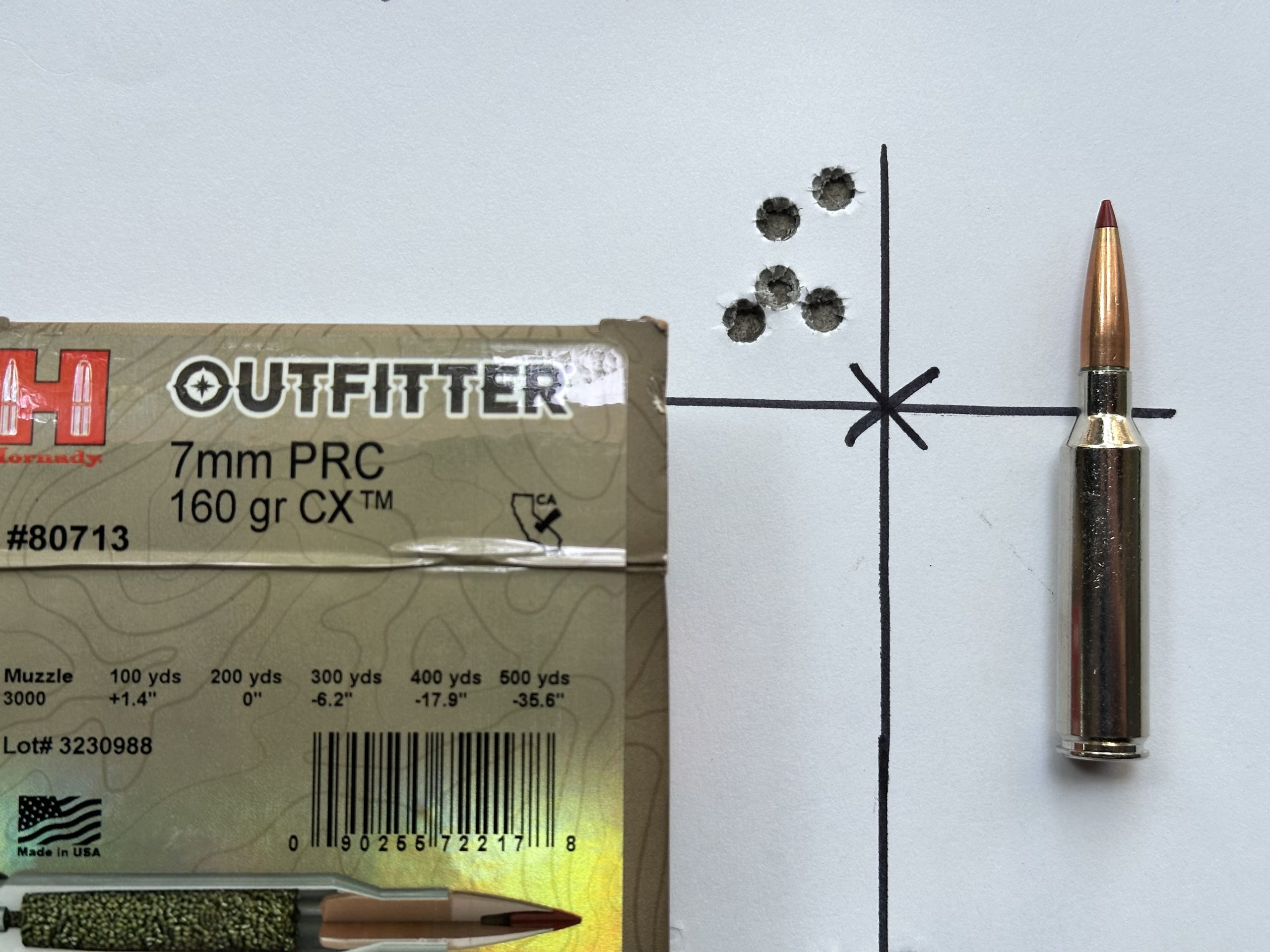
Final Thoughts
Overall, I give Weatherby a 9/10 rating on this Model 307 Alpine MDT Carbon. The only lost point is mainly due to a personal preference because I enjoy a lighter trigger, even for hunting. If this rating seems high, it’s because it is. If I were to build a custom hunting rifle tomorrow, it would basically be a copy-and-paste version of this one. I would also have a difficult time doing this for less than the $3,499.00 MSRP that the Model 307 Alpine MDT Carbon has. A carbon fiber folding chassis, carbon fiber barrel, quality action supported heavily with aftermarket parts, ARCA compatibility, 20 MOA optic rail, and a highly efficient muzzle brake would all be the priorities that this rifle provides.
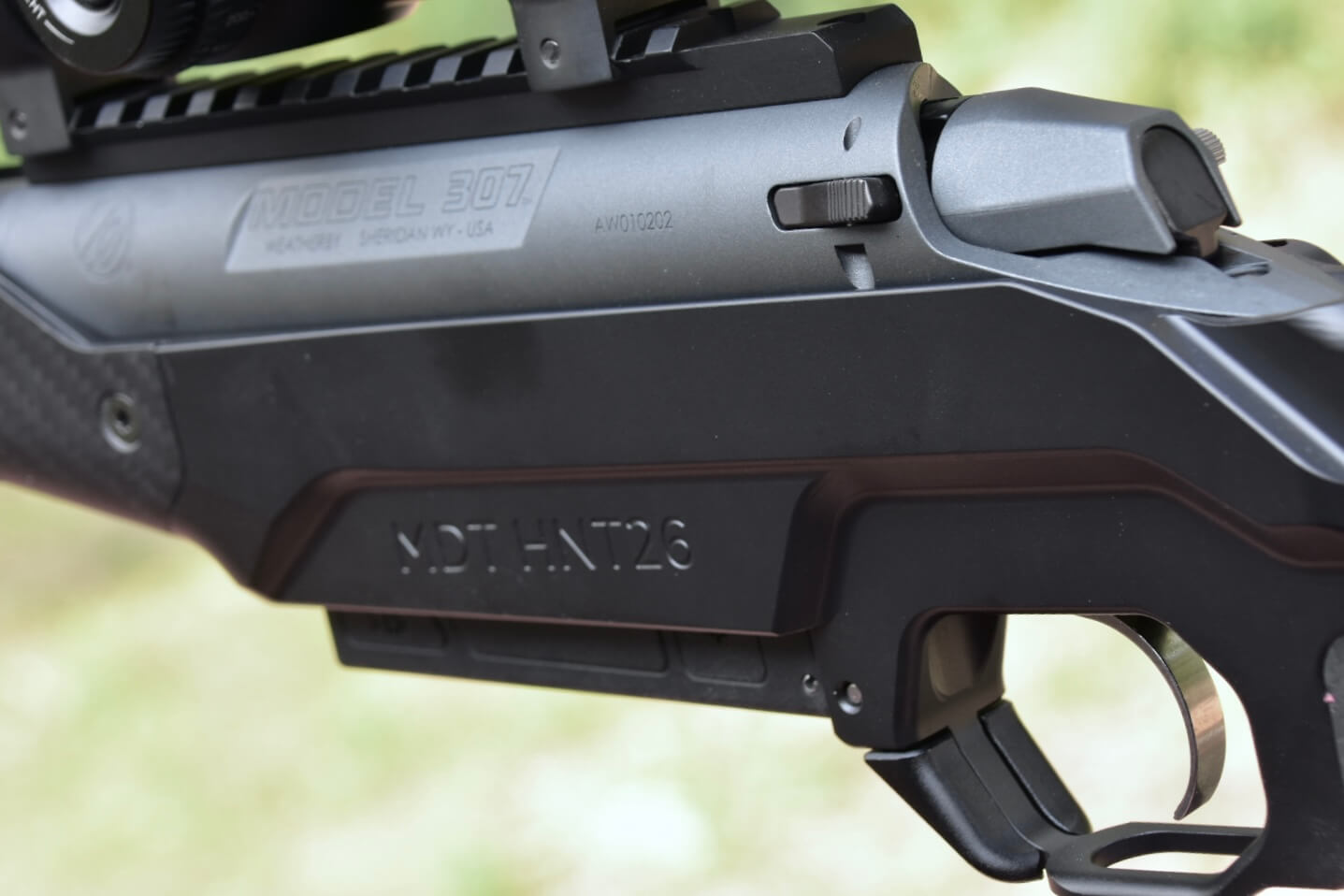
One thing to mention from my use of the Model 307 Alpine MDT Carbon: I recommend (as always) adding witness marks to all bolts. The three Torx head bolts that hold the carbon fiber forend of the chassis onto the magnesium V-block would slowly work loose over time while shooting. The solution is to add your favorite flavor, LokTite, to these bolts to keep this from happening.
READ MORE: Casting a Smaller Shadow, New CZ Shadow 2 Compact Packs A Punch
Other than this, I have no real complaints. The action is smooth, the tool-less bolt disassembly is awesome, the accuracy is very respectable, the weight is incredible, and the ergonomics and aesthetics are on point. I trust this rifle to perform and I would really like to put it to work this fall.
Learn more about the Model 307 Alpine MDT Carbon here.
